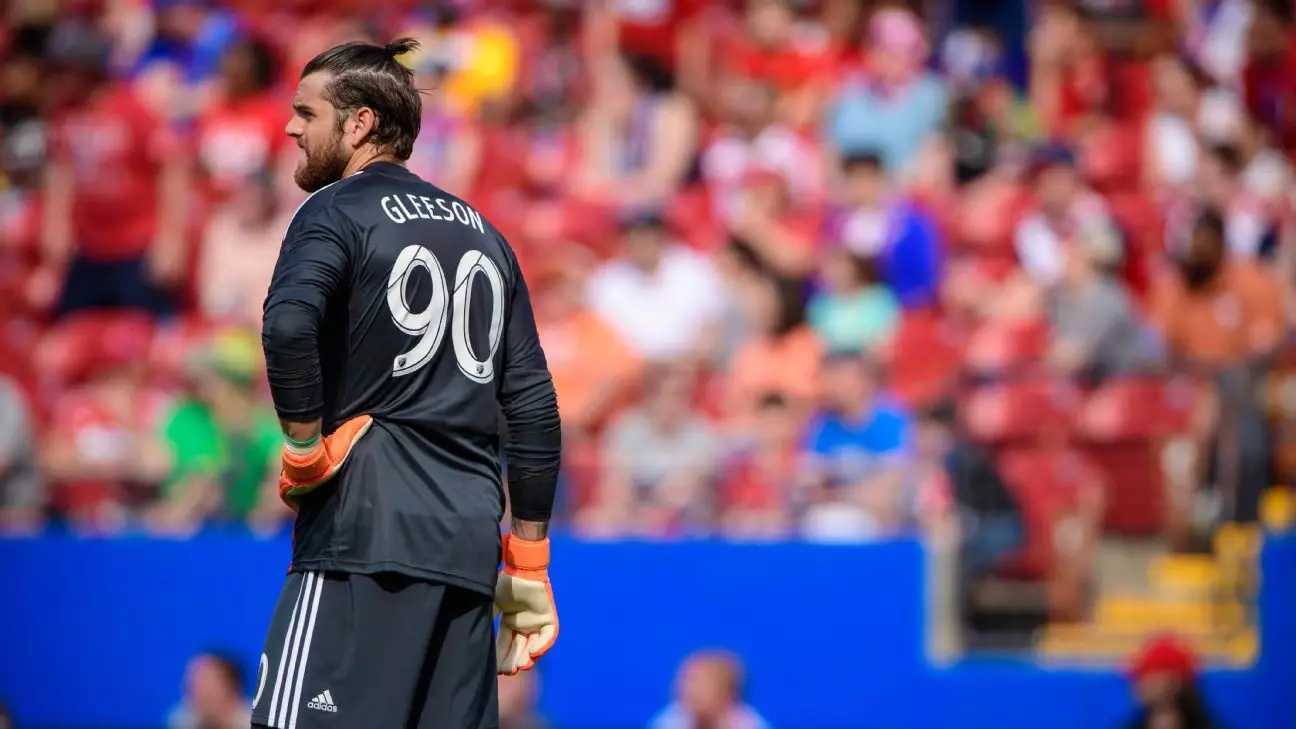The harrowing tale of former Portland Timbers goalkeeper Jake Gleeson is a stark reminder of the profound impact healthcare providers wield over their patients’ lives. Recently, a jury found in favor of Gleeson, awarding him over $20 million in a medical malpractice suit against Dr. Richard H. Edelson, the physician responsible for his career-ending surgery in 2018. This verdict isn’t just a financial decision; it is emblematic of the fight against systemic failures within the healthcare system that can lead to irreparable harm.
Gleeson’s ordeal began with a seemingly routine procedure meant to address stress fractures in both of his legs. However, the aftermath of the surgery spiraled into a nightmarish reality, where post-operative infections emerged, allegedly due to improperly sterilized surgical plates. This negligence resulted in 14 surgeries over the course of multiple years, and the ultimate price was not merely monetary—it was a disruption of a life once filled with professional promise and athleticism.
The Heart of the Matter: Accountability and Advocacy
What makes this case particularly poignant is Gleeson’s fervent advocacy for patient safety. Following the jury’s ruling, he emphasized the importance of trust between patients and medical professionals. “When you sign that consent form, you’re trusting that they will do everything to protect you,” Gleeson stated, encapsulating a sentiment that resonates widely—beyond the sports world and into everyday life. It brings to light the urgent need for greater accountability in medical practices, especially when a patient’s well-being is at stake.
Despite the damning evidence presented during the trial, which included Gleeson’s gut-wrenching testimony alongside support from former teammates and staff, the defense maintained that surgical infections are a common risk and that the sterilization methods employed were adequate. Such arguments, however, overlook the deeper moral imperative: the duty of care owed to patients cannot be reduced to mere technicalities or blanket statements.
For Gleeson and many like him, the emotional and psychological toll of medical neglect is immeasurable. The struggle is not just physical pain resulting from surgical errors; it morphs into anxiety, despair, and a definitive loss of identity—qualities that define one’s career as a professional athlete. Gleeson’s life has been heavily overshadowed by a six-and-a-half-year saga of constant pain and surgeries, highlighting that these experiences are rarely contained to just the physical realm.
The Legal Landscape: A Long and Hard-Fought Battle
This case has not only been a personal struggle for Gleeson but also a protracted legal journey marked by distress and confrontation with the system. It included settling claims against other medical professionals before finally confronting Dr. Edelson and the surgical facility involved. The multifaceted nature of Gleeson’s case reveals the complexities faced by individuals seeking justice in the medical field, where procedural hurdles can often lead to a sense of hopelessness.
The 12-0 verdict on multiple counts of negligence against Dr. Edelson substantiates the gravity of the malpractice. It reaffirms the legal framework that exists to protect patients from such egregious oversights. The jury’s decisions regarding damages—totaling more than $20 million—underscore the profound consequences of negligence in a clinical setting. Yet, the defense’s appeal intention casts a shadow over the perceived finality of justice delivered through this ruling.
In a world where personal interests frequently collide with professional responsibilities, Gleeson’s case serves as a beacon of hope for those seeking accountability in healthcare. The need for reform in medical practices becomes glaring, as does the imperative for patients to be empowered advocates for their own health, ensuring that they receive the standard of care that should be guaranteed to them.
A New Narrative for Patient Safety
Jake Gleeson’s saga serves as a cautionary tale but also as a narrative of resilience and resolve. It encourages a critical appraisal of how we view medical practitioners and institutions. The expectation that these bodies will adhere to stringent health protocols isn’t merely a hope; it is a legal and ethical necessity.
As Gleeson continues to grapple with the aftermath of his medical journey, his push for reform and patient advocacy takes center stage, fostering a dialogue that underscores the need for safety standards and accountability in the medical system. The ramifications of this case extend beyond Gleeson, promising to influence countless lives as the healthcare industry reevaluates its approach to patient safety and ethical responsibility.


Leave a Reply